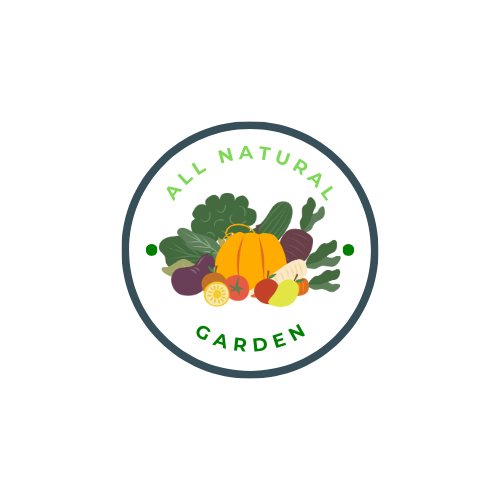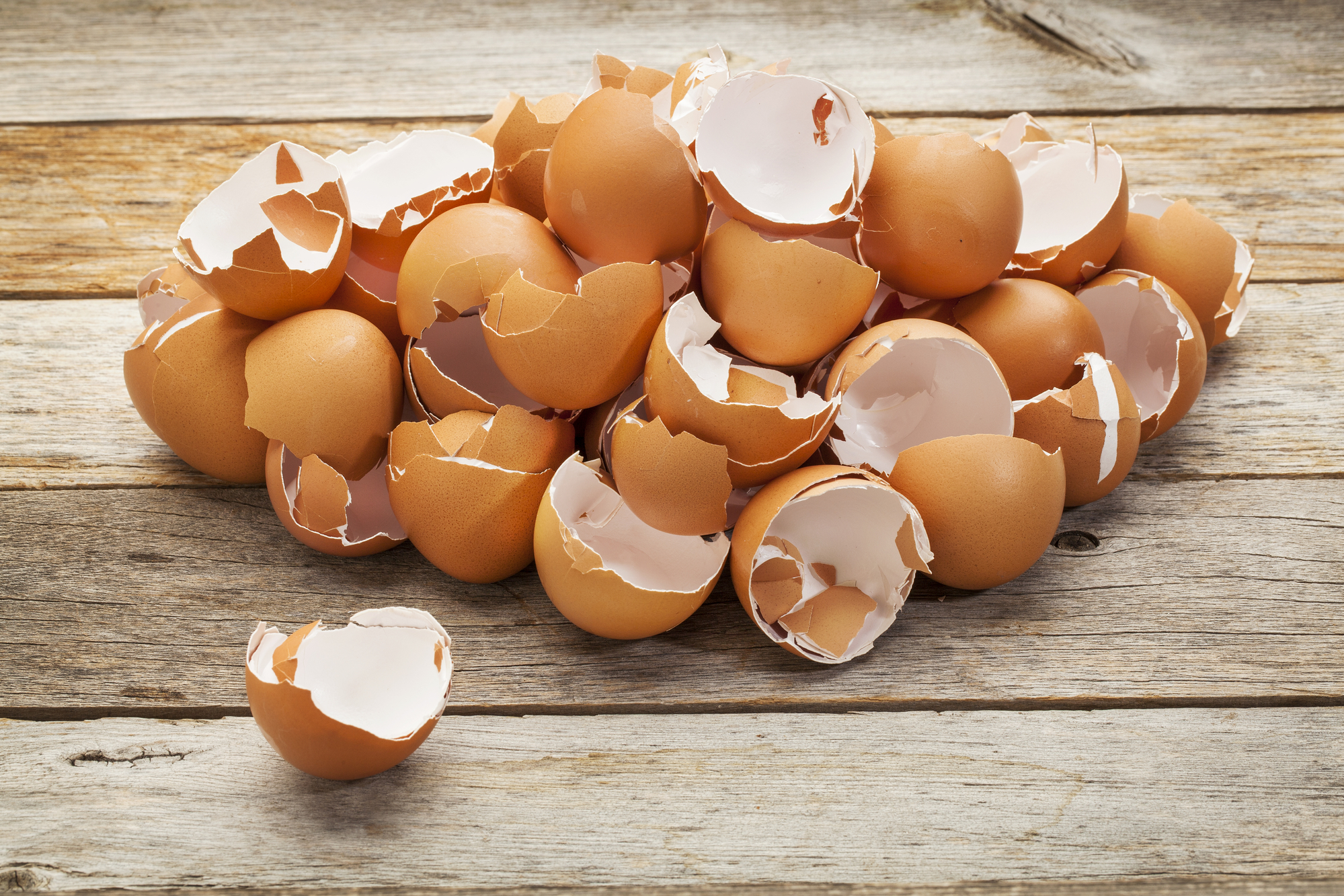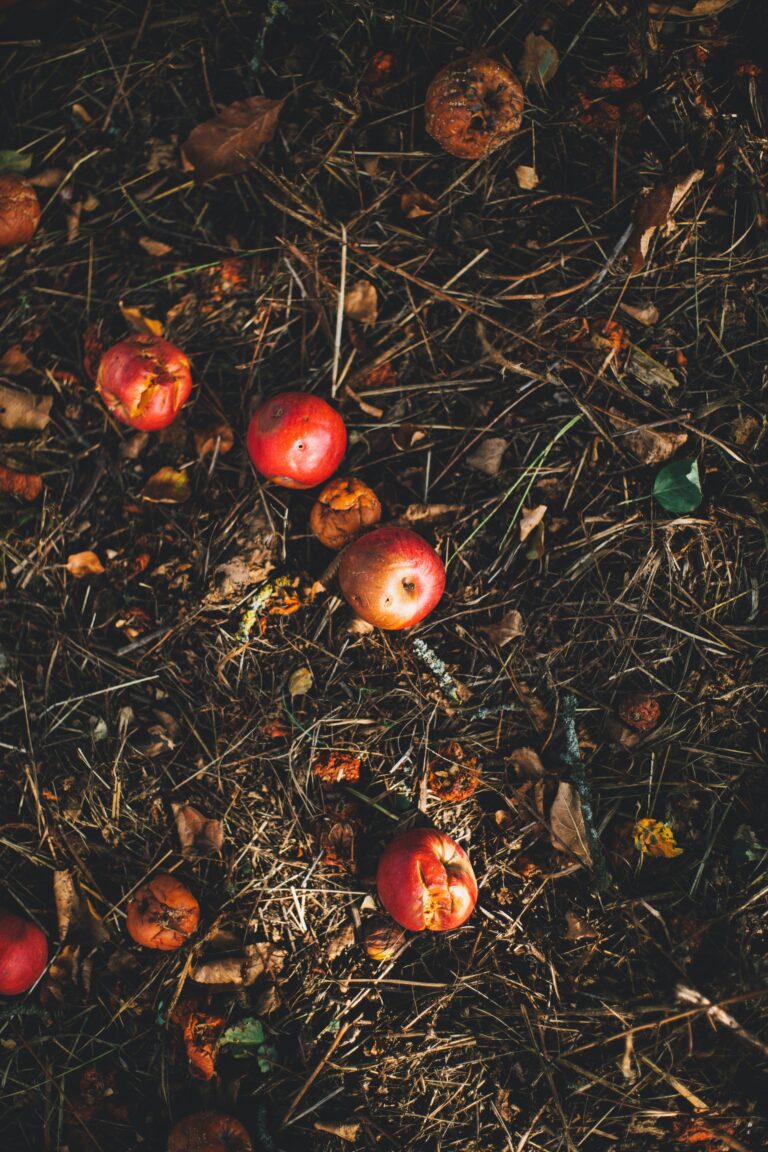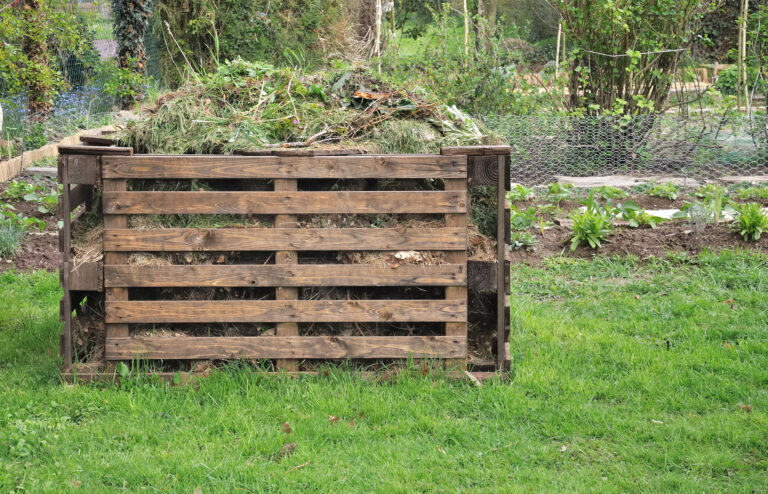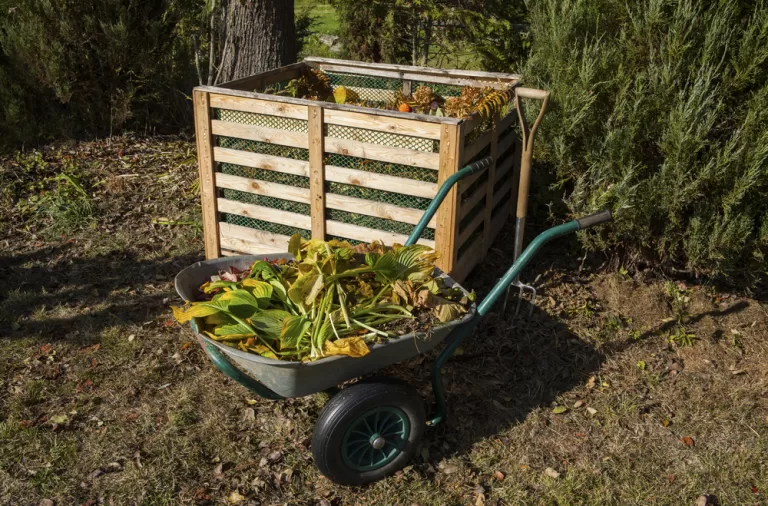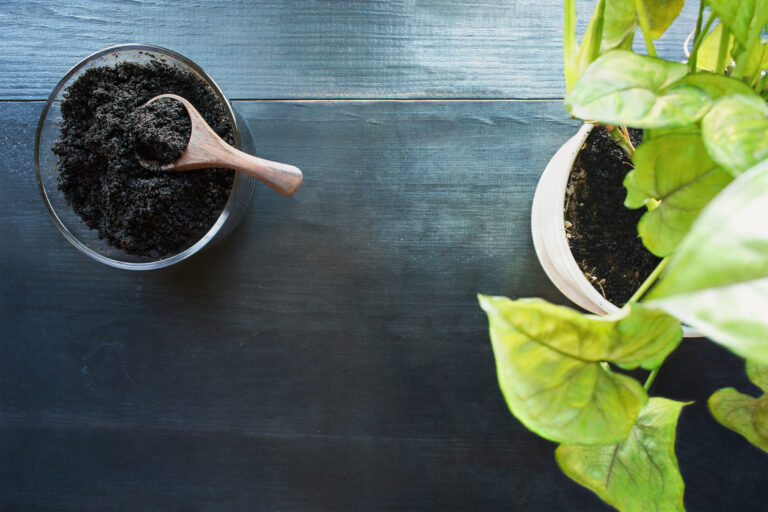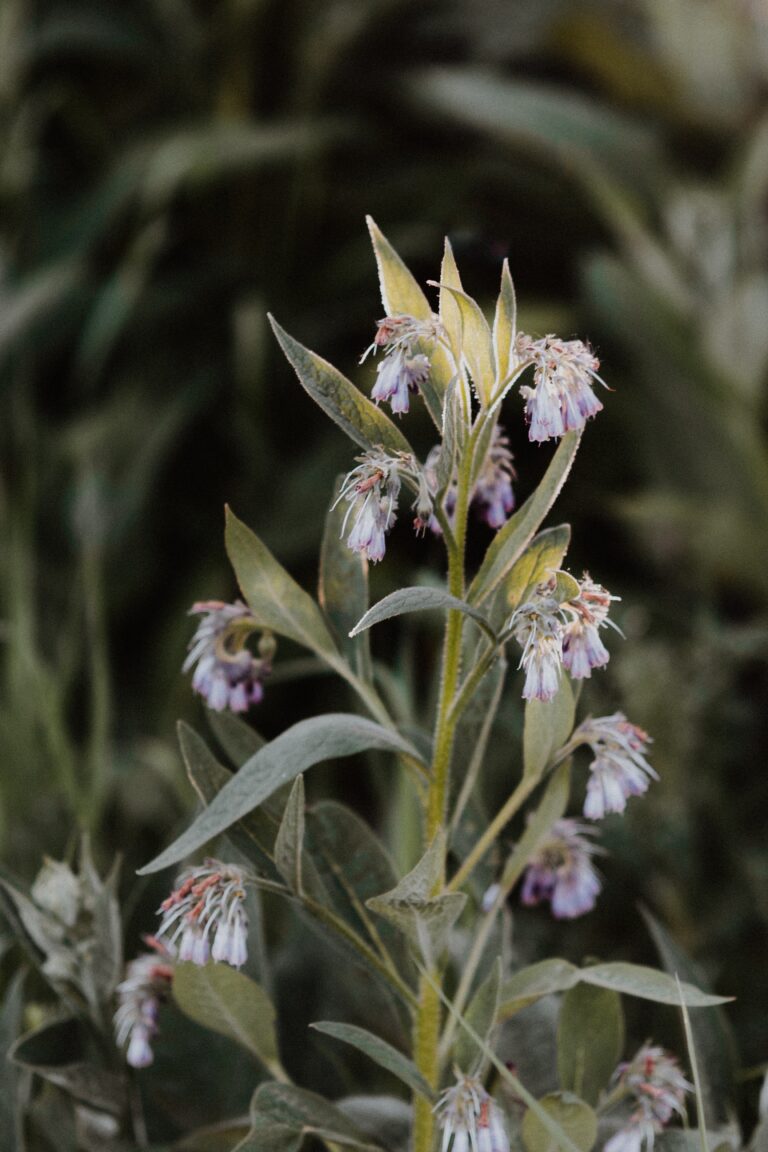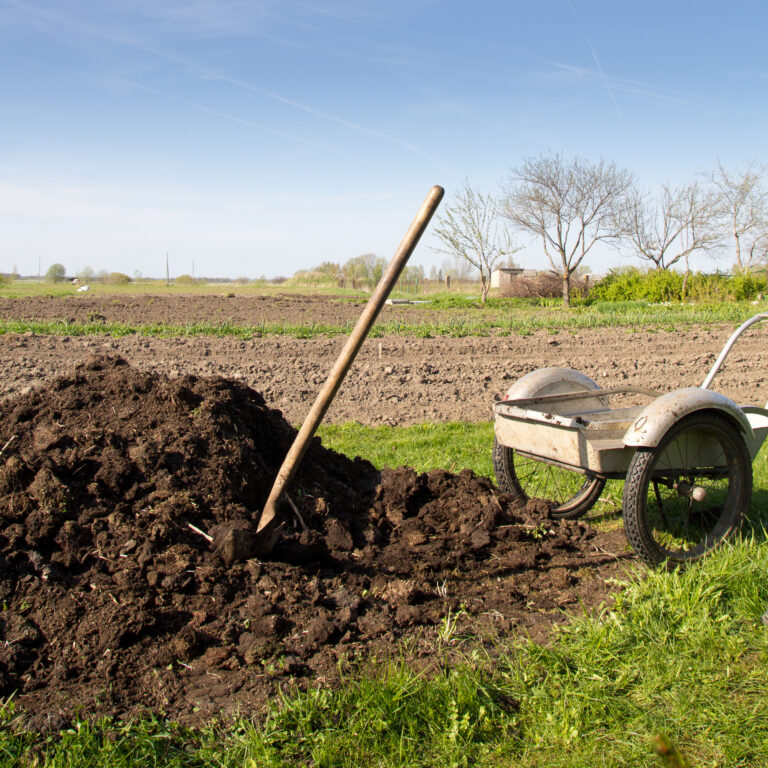Are you walking on eggshells? You should be!
Eggshells are often considered as waste and are discarded without a second thought. However, eggshells make excellent fertilizer for your garden! Eggshells contain calcium, magnesium, and other minerals that are essential for plant growth. When crushed into small pieces, eggshells can be used as a natural fertilizer for plants.
Eggshells are a rich source of calcium, which is an important nutrient for plants. Calcium helps to strengthen cell walls, which in turn helps plants to resist diseases and pests. It also helps to regulate the pH level of the soil, making it more alkaline. This is particularly beneficial for plants that thrive in alkaline soil, such as tomatoes and peppers.
In addition to calcium, eggshells also contain magnesium, which is another important nutrient for plants. Magnesium is essential for the production of chlorophyll, which is responsible for the green color in plants. It also helps to regulate the uptake of other nutrients, such as nitrogen and phosphorus. By using eggshells as fertilizer, gardeners can provide their plants with a natural source of calcium and magnesium, which can help to promote healthy growth and development.
Understanding Eggshells
Eggshells are a common household waste product that can be used as a natural fertilizer. They are rich in calcium, which is an essential nutrient for plant growth. In addition to calcium, eggshells also contain small amounts of other minerals such as magnesium, potassium, and phosphorus.
When using eggshells as fertilizer, it is important to understand how to prepare them properly. First, rinse the eggshells thoroughly to remove any remaining egg whites or yolks. Then, allow the eggshells to dry completely. Once the eggshells are dry, they can be crushed into small pieces using a mortar and pestle or a food processor.
One way to use crushed eggshells as fertilizer is to sprinkle them around the base of plants. The calcium in the eggshells helps to strengthen the cell walls of the plant, making it more resistant to disease and pests. Additionally, the calcium can help to prevent blossom end rot in tomatoes and other fruits and vegetables.
Another way to use eggshells as fertilizer is to add them to compost. The calcium and other minerals in the eggshells can help to balance the pH of the compost, making it more conducive to healthy plant growth.
Overall, eggshells are a natural and effective fertilizer option that can benefit both plants and the environment.
Chemical Composition of Eggshells
Eggshells are primarily composed of calcium carbonate, which makes up about 94% of the shell’s dry weight. In addition to calcium carbonate, eggshells also contain small amounts of other minerals such as magnesium, phosphorus, and potassium.
Calcium is an essential nutrient for plant growth and development, and eggshells can be a valuable source of this nutrient for gardeners. When eggshells are added to soil, they slowly release calcium into the soil as they break down. This can help to improve soil quality and promote healthy plant growth.
In addition to providing calcium, eggshells can also help to regulate soil pH. Calcium carbonate is an alkaline substance, which means that it can help to neutralize acidic soils. This can be particularly beneficial for plants that prefer neutral to slightly alkaline soil conditions.
Overall, eggshells can be a valuable source of nutrients for plants, and can help to improve soil quality and promote healthy plant growth. By incorporating eggshells into their gardening practices, gardeners can reduce waste and promote sustainable gardening practices.
Benefits of Eggshells as Fertilizer
Eggshells are not just waste products to be thrown away. They can be an excellent source of nutrients for plants. Here are some benefits of using eggshells as fertilizer:
Soil Enrichment
Eggshells are rich in calcium, which is an essential nutrient for plant growth. Calcium helps to strengthen the cell walls of plants, making them more resistant to disease and pests. Using eggshells as fertilizer can also help to balance the pH level of the soil, making it more alkaline. This is particularly beneficial for plants that prefer alkaline soil, such as tomatoes, peppers, and eggplants.
Pest Deterrent
Eggshells can also be used as a natural pest deterrent. Crushed eggshells can be sprinkled around the base of plants to create a barrier that pests, such as slugs and snails, are reluctant to cross. The sharp edges of the eggshells can also be effective at deterring larger pests, such as rabbits and deer.
Compost Enhancement
Eggshells can be added to compost to help speed up the decomposition process. The calcium in the eggshells can also help to balance the pH level of the compost, creating a more nutrient-rich environment for plants. When using eggshells in compost, it is important to crush them into small pieces to help them break down more quickly.
In conclusion, using eggshells as fertilizer can be a cost-effective and environmentally friendly way to improve the health and productivity of plants. With their high calcium content, ability to deter pests, and ability to enhance compost, eggshells are a valuable resource for any gardener.
Application Methods
Direct Application
One common way to use eggshells as fertilizer is to apply them directly to the soil. Before doing so, it is important to clean and dry the eggshells thoroughly. Once they are dry, they can be crushed into small pieces and sprinkled around the base of the plants. The calcium from the eggshells will slowly release into the soil, providing nutrients to the plants.
Eggshell Tea
Another way to use eggshells as fertilizer is to make eggshell tea. To do this, the eggshells are cleaned and dried, then crushed into small pieces. The pieces are then placed in a container of water and left to soak for several days. The resulting liquid can be used to water plants, providing them with calcium and other nutrients.
Eggshell Powder
Eggshell powder is another method for using eggshells as fertilizer. To make eggshell powder, the eggshells are first cleaned and dried, then ground into a fine powder. The powder can be sprinkled around the base of plants or added to the soil before planting. This method provides a slow-release source of calcium for the plants.
Overall, eggshells can be a great source of nutrients for plants when used correctly. By using one of these three application methods, gardeners can provide their plants with the calcium and other minerals they need to grow strong and healthy.
Potential Risks and Concerns
Salmonella Risk
While eggshells can be a great source of calcium and other nutrients for plants, there is a potential risk of salmonella contamination when using eggshells as fertilizer. Salmonella is a type of bacteria that can cause food poisoning in humans, and it can be present on the surface of eggshells.
To minimize the risk of salmonella contamination, it is recommended to wash the eggshells thoroughly with hot water and soap before using them as fertilizer. Additionally, it is important to only use eggshells from reputable sources, such as organic farms or your own backyard chickens that have been raised in a clean and healthy environment.
Over-Fertilization
Another potential concern when using eggshells as fertilizer is over-fertilization. Eggshells are a slow-release fertilizer, meaning that they release nutrients slowly over time as they break down. However, if too many eggshells are added to the soil at once, it can lead to an excess of nutrients in the soil, which can harm plants.
To avoid over-fertilization, it is recommended to crush the eggshells into small pieces and mix them into the soil in small amounts. It is also important to monitor the soil’s nutrient levels and adjust the amount of eggshells used accordingly.
Overall, while there are potential risks and concerns when using eggshells as fertilizer, they can be a great natural and cost-effective option for providing nutrients to plants. By taking proper precautions and using them in moderation, eggshells can help promote healthy plant growth without harming the environment.
Conclusion
In conclusion, eggshells can be a valuable addition to any garden as a natural fertilizer. They are rich in calcium, which is essential for plant growth and development. Eggshells can also help to balance the pH levels in the soil, making it more conducive to plant growth.
When using eggshells as fertilizer, it is important to crush them into small pieces to make them easier for plants to absorb. It is also important to use them in moderation, as too much calcium can lead to nutrient imbalances in the soil.
Overall, eggshells are a cost-effective and environmentally friendly way to improve soil health and promote plant growth. By incorporating eggshells into their gardening practices, gardeners can enjoy healthier, more vibrant plants without relying on synthetic fertilizers.
